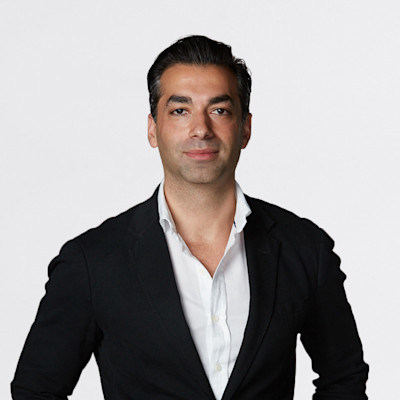The importance of a balanced diet
With all this talk about nutrients and multivitamins, you may be wondering: Where does diet fit in? It’s a great question—and a salient one, too, especially when it comes to thinking about a long-term wellness strategy instead of a “quick fix” (not that those exist anyway). Like many experts, we recommend a food-first approach to nutrition, aiming to fill the majority of nutrient needs through a whole foods-based diet, then supplementing to help fill the gaps.*
The truth is, we all need a balance of micronutrients and macronutrients to support nutrient needs. And while we’ve been talking a lot about micronutrients (aka vitamins and minerals) throughout this piece, we’d be remiss not to mention the importance of minding the macros, too. Macronutrients are nutritional compounds that we need in higher amounts than their micronutrient counterparts—in this case protein, carbs, and healthy fats.
Protein is one especially important callout: It’s estimated that, from the age of 50 onwards, older adults may lose between 0.5%-2% of their total muscle mass each year. The good news is that we have more sway over this than we might think: Combining physical activity with appropriate nutrition—including adequate protein intake—is considered to be an important way to support the maintenance of muscle mass in older age. That’s why we created Essential Protein Daily Shake 50+, our plant-based protein with calcium HMB to support the maintenance of lean muscle mass for healthy, active aging.* (10, 11, 12, 13)
The essential takeaway
You deserve a multivitamin that was formulated with specific life stages and nutrient needs in mind—and that’s exactly what drove our decision-making as we developed Essential for Men 50+ Multivitamin (and Essential Protein Daily Shake 50+). In other words, we help take the guesswork out of supporting nutrition—one less thing for you to worry about as you get out there and tackle life the way you want. As always, if you have questions about nutrition, supplementation, or men’s health in general, we recommend reaching out to a trusted healthcare provider.*
References:
- USDA. Usual Nutrient Intake from Food and Beverages: Mean Amounts Consumed per Individual by Gender and Age, What We Eat in America, NHANES 2015-2016.
- USDA, Agricultural Research Service. Usual Nutrient Intake from Food and Beverages, by Gender and Age, What We Eat in America, NHANES 2013-2016. 2019.
- U.S. Department of Health and Human Services and U.S. Department of Agriculture. 2015 – 2020 Dietary Guidelines for Americans. 8th Edition. 2015.
- World Health Organization. Interim Summary of Conclusions and Dietary Recommendations on Total Fat & Fatty Acids From the Joint FAO/WHO Expert Consultation on Fats and Fatty Acids in Human Nutrition. 2008.
- Office of Dietary Supplements. Vitamin K: Fact sheet for Health Professionals. National Institutes of Health, Department of Health & Human Services, 2021.
- Tsang BL, Devine OJ, Cordero AM, et al. Assessing the association between the methylenetetrahydrofolate reductase (MTHFR) 677>T polymorphism and blood folate concentrations: A systematic review and meta-analysis of trials and observational studies. Am J Clin Nutr. 2015;101(6):1286-1294.
- Office of Dietary Supplements. Vitamin B12: Fact sheet for Health Professionals. National Institutes of Health, Department of Health & Human Services, 2020.
- Institute of Medicine. Food and Nutrition Board. Dietary Reference Intakes: Thiamin, Riboflavin, Niacin, Vitamin B6, Folate, Vitamin B12, Pantothenic Acid, Biotin, and Choline. Washington, DC: National Academy Press, 1998.
- Mogosanu GD, Bita A, Bejenaru LE, Croitoru O, Rau G, Rogoveanu OC, Florescu DN, Neamtu J, Scorei ID, Scorei RI. Calcium fructoborate. Biol Trace Elem Res. 2016 Aug;172(2):277-81.
- Deutz NE, Bauer JM, Barazzoni R, Biolo G, Boirie Y, Bosy-Westphal A, Cederholm T, Cruz-Jentoft A, Krznariç Z, Nair KS, Singer P, Teta D, Tipton K, Calder PC. Protein intake and exercise: recommendations from the ESPEN Expert Group. Clin Nutr. 2014 Dec;33(6):929-36.
- Robinson SM, Reginster JY, Rizzoli R, Shaw SC, Kanis JA, Bautmans I, Bischoff-Ferrari H, Bruyère O, Cesari M, Dawson-Hughes B, Fielding RA, Kaufman JM, Landi F, Malafarina V, Rolland Y, van Loon LJ, Vellas B, Visser M, Cooper C; ESCEO working group. Does nutrition play a role? Clin Nutr. 2018 Aug;37(4):1121-1132.
- van Vliet S Van, Burd NA, van Loon LJ. The Skeletal Muscle Anabolic Response to Plant- versus Animal-Based Protein Consumption. J Nutr Crit Rev. 2015;145:1981-1991.
- World Health Organisation. World Report on Ageing and Health. Geneva, Switzerland: 2015.
- Institute of Medicine (IoM), 2001. Dietary Reference Intakes for Vitamin A, Vitamin K, Arsenic, Boron, Chromium, Copper, Iodine, Iron, Manganese, Molybdenum, Nickel, Silicon, Vanadium, and Zinc. National Academies Press. Washington DC.














